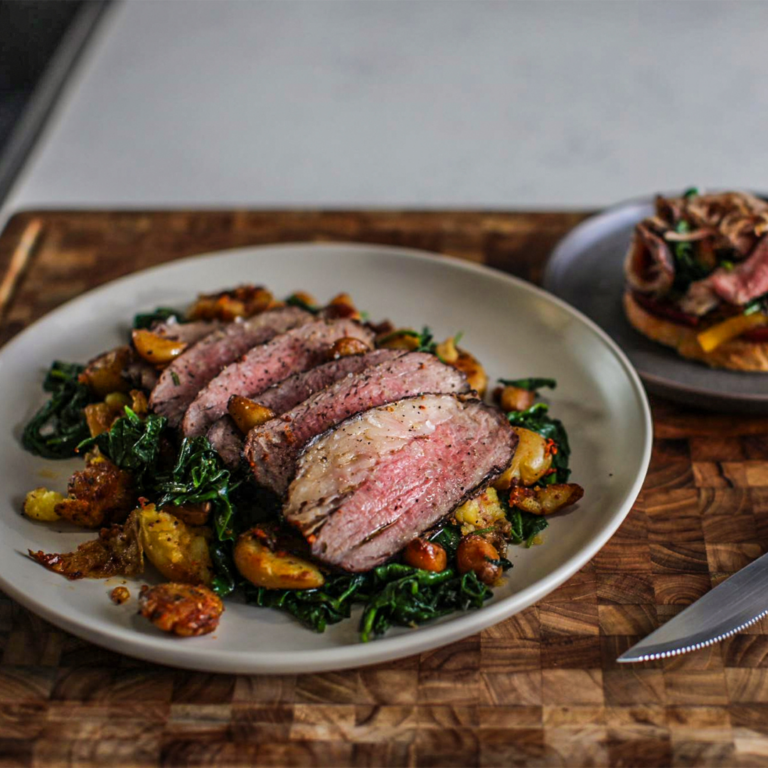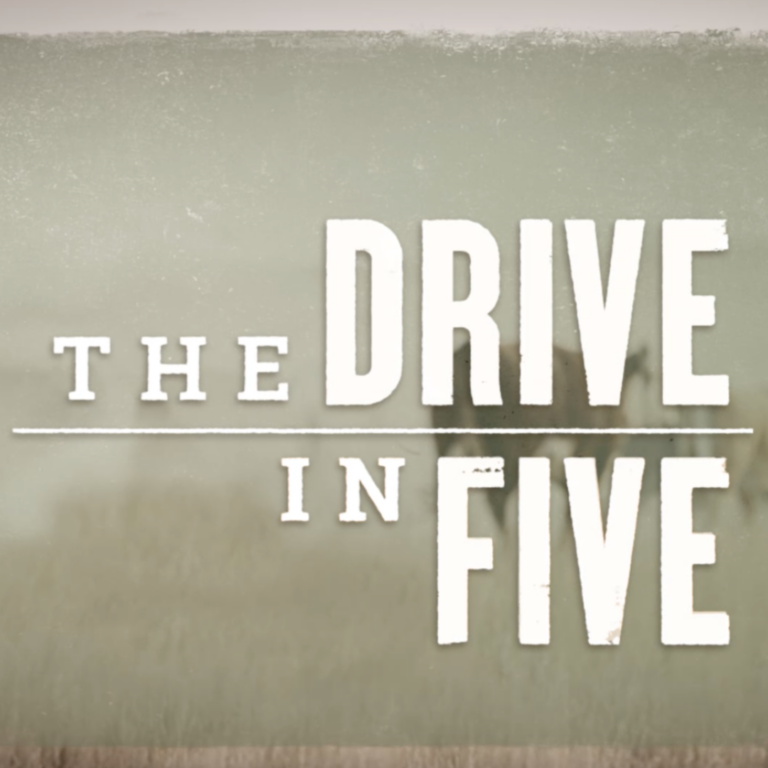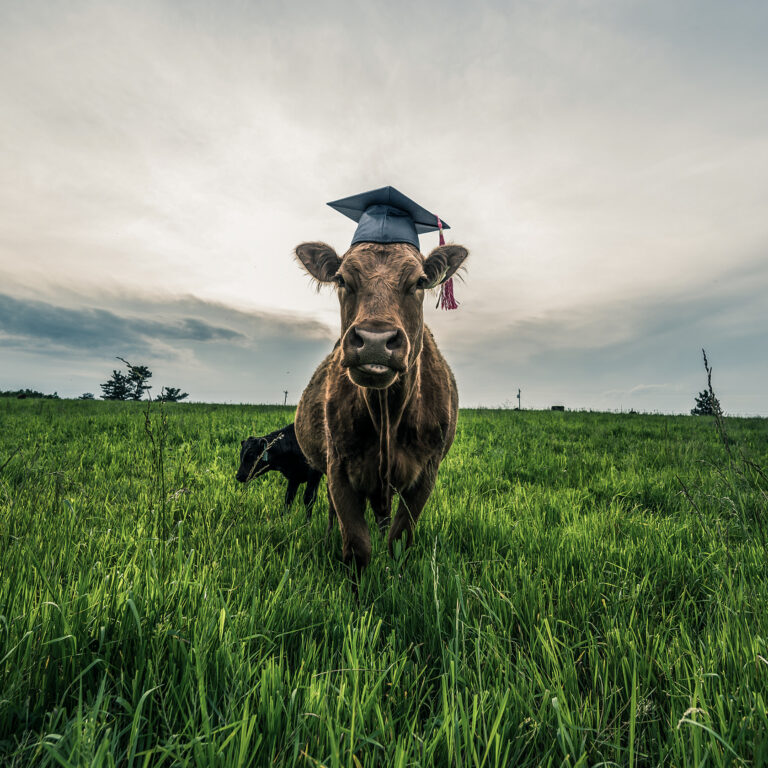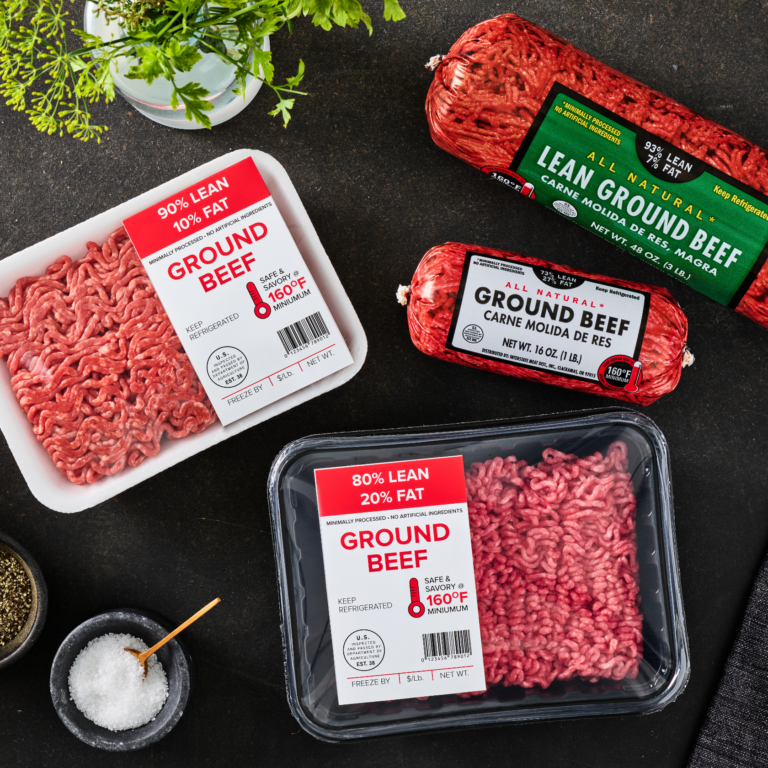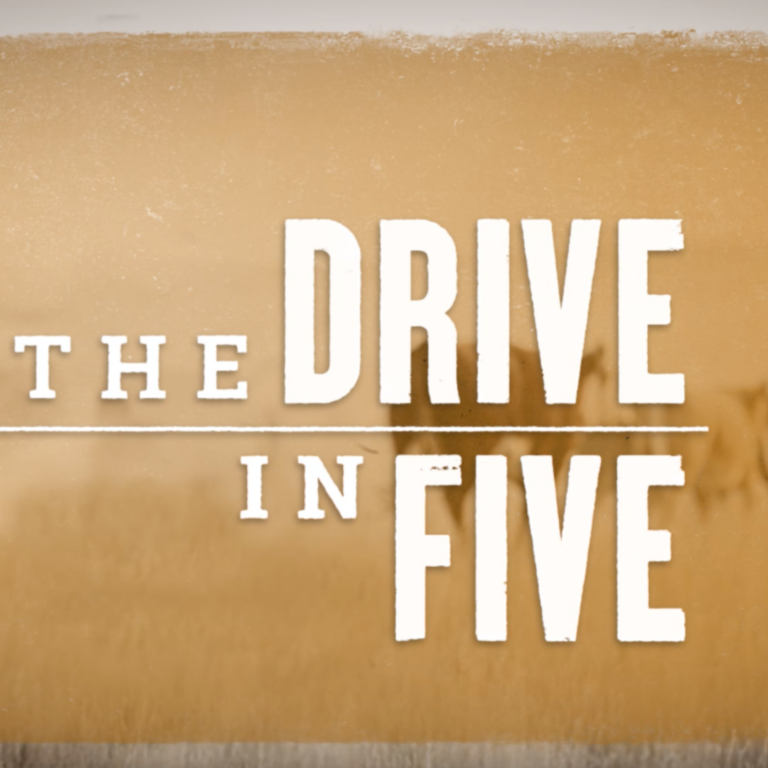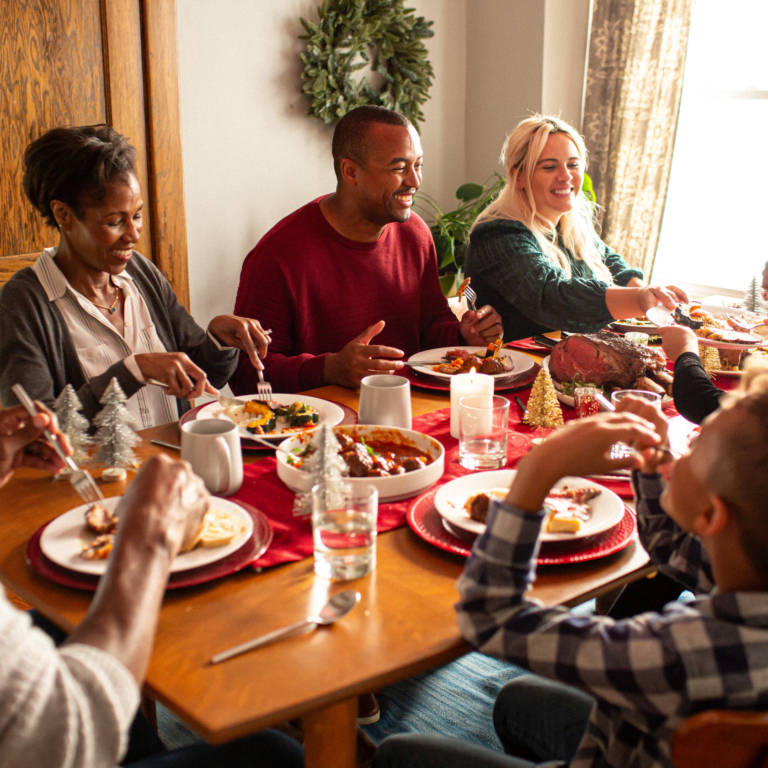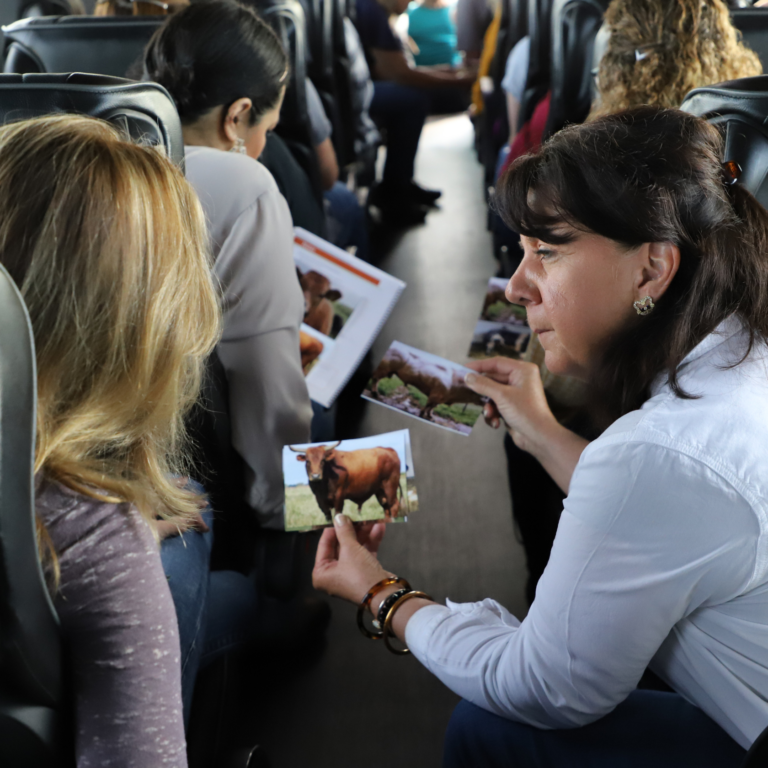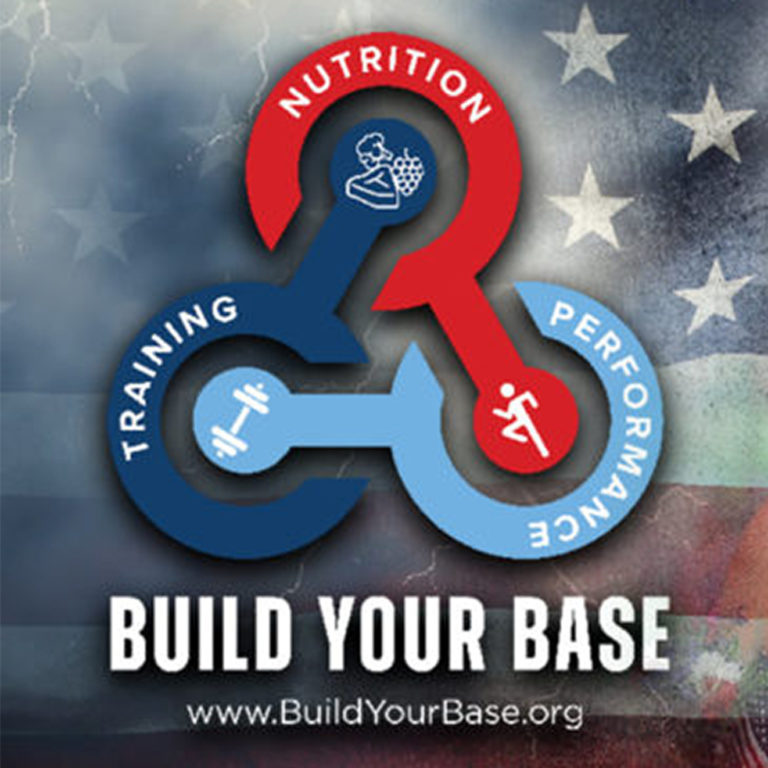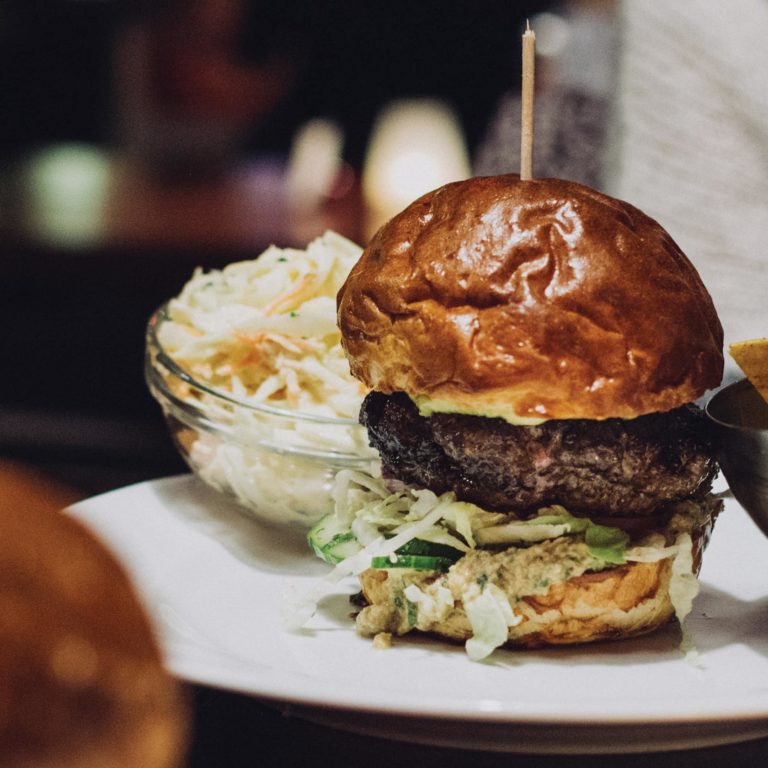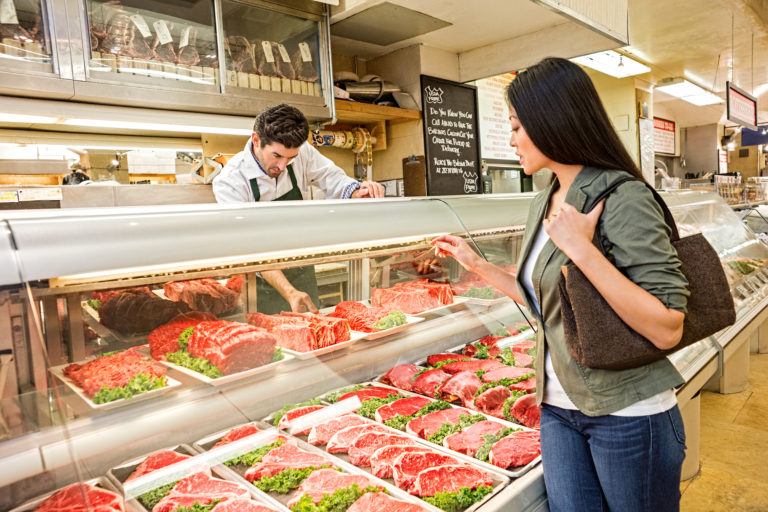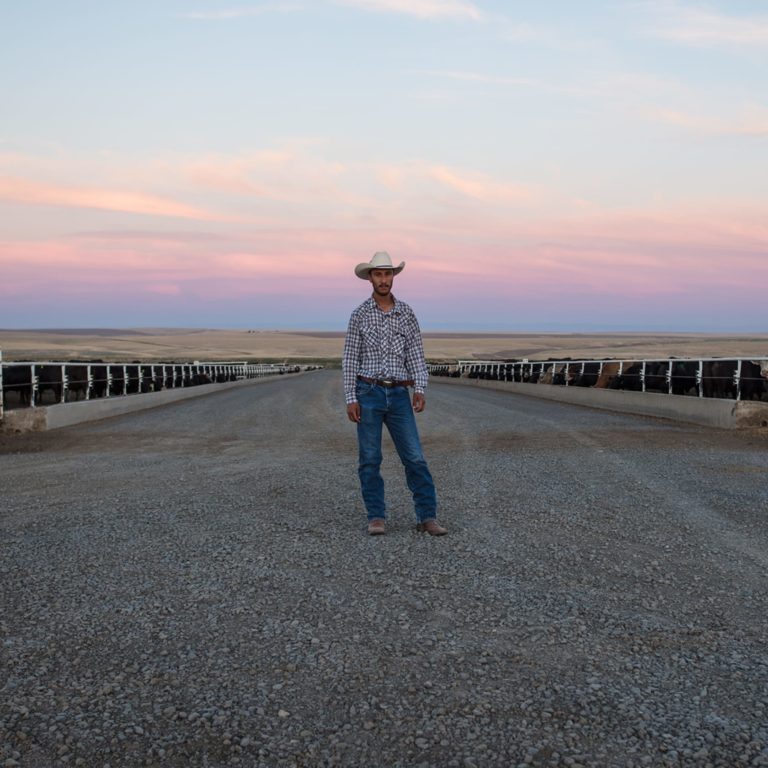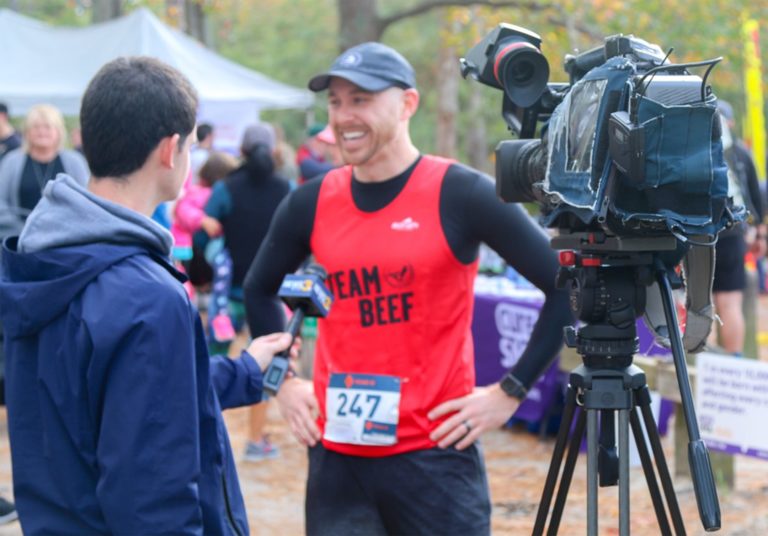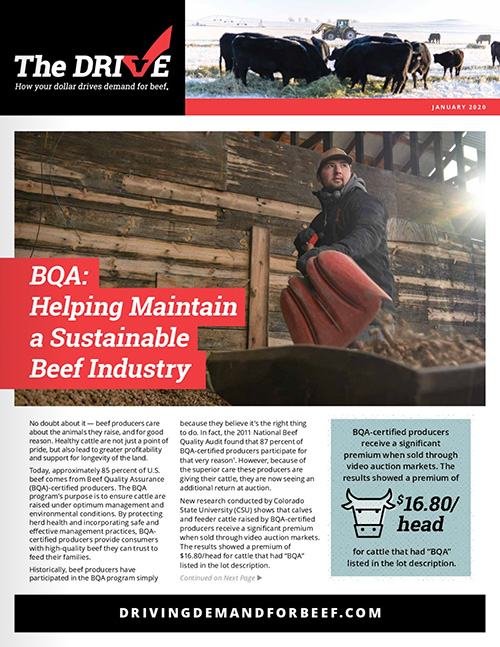Stewarding Success with Veal
Both the beef and dairy industries work hand in hand to contribute to the beef supply, but there is one industry sector uniquely positioned between both – veal.
WHAT IS VEAL?
Primarily raised in New York, Pennsylvania, Ohio, Michigan, Wisconsin and Indiana, veal is a meat derived primarily from young Holstein bull calves. Bull calves are typically sold shortly after birth through local auction markets or purchased directly by others who will raise them for beef or veal. There are two primary sources of veal: bob veal and formula-fed veal
Bob veal consists of dairy bull calves sold and marketed shortly after birth, while formula-fed, also known as milk-fed or special-fed, are dairy bull calves that are raised for about six months and harvested at approximately 500 pounds or more. Formula-fed calves also receive grain and are ruminating animals at the time of harvest. In the marketplace today, 68 percent of veal is derived from formula-fed/grain-fed veal calves.
Today, there are approximately 400 veal farms in the U.S., and many are Amish or Mennonite families. Each farm family raises about 400 head per year. Out of all the formula-fed calves marketed each year, 95 percent come from Veal Quality Assurance (VQA)-certified farms. All VQA certifications are verified by a veterinarian.
- ~ 400 veal farms in the U.S.
- ~ 400 head per farm each year
- 95% come from Veal Quality Assurance (VQA) certified farms
Ultimately, veal production supports the dairy industry by adding value to its calves and co-products.
GROWING CONSUMER TRUST
The Beef Checkoff-funded VQA program is designed to ensure dairy beef animals raised and marketed specifically for veal receive a level of care that guarantees optimal health and welfare. In addition to being beneficial for veal producers, VQA helps grow consumer trust in veal production.
Seventy-four percent of consumers agree that food companies should be more transparent about their farming practices – this jumps to nearly 80 percent when asking Millennials alone1. This statistic shows the importance of giving consumers complete clarity on the production practices of veal farming.
The VQA program makes it possible for Beef Checkoff contractors to share credible and ethical stories when marketing veal to consumers.
DISCOVERY OF VEAL
The Beef Checkoff-funded National Veal Program is managed by Checkoff contractor North American Meat Institute (NAMI) and subcontractor New York Beef Council (NYBC). This team produces multiple Checkoff- funded promotional campaigns and develops educational pieces, both intended to increase consumers’ discovery and trust in veal. The consumer-facing brand, Veal – Discover Delicious, capitalizes on veal’s unique taste, value and versatility. Veal is distinctive in the meat space because a three-ounce serving of cooked, trimmed lean veal has just about 170 calories, making it one of the most nutrient-dense protein foods around.
Also, veal provides 29 percent of the recommended daily intake of zinc, 36 percent of niacin and 23 percent of vitamin B-12. In short, it provides a fat and calorie profile similar to chicken but with the nutrient density of beef2.
- 29% of the recommended daily intake of zinc
- 36% of the recommended daily intake of niacin
- 23% of the recommended daily intake of vitamin B-12
To spread the word about veal’s extraordinary nutrition package, Veal – Discover Delicious focuses on reaching new Millennial audiences with exciting promotional efforts. Millennial consumers today continue to have little awareness or knowledge of veal as a meat choice.
All promotional efforts address this knowledge gap with messaging that explains how to find and access veal while building confidence in the protein’s taste, nutrition and safety.
CUTTING-EDGE INITIATIVES
Forty-five percent of consumers report shopping online for groceries more now than before the pandemic3, and online shopping has remained popular into 2022. To reach the online shopping community, Veal – Discover Delicious partners with Chicory, a digital shopper marketing platform that turns recipes into a retail environment by reaching consumers through an online recipe network. While reading through online recipes, consumers can add veal directly to their virtual shopping carts with a quick click on advertisements with retailers like Instacart and Publix. Campaigns with Chicory last year have resulted in more than nine thousand veal orders. Additionally, Fresh Direct is another online retailer that Veal – Discover Delicious works with and has resulted in more than one thousand orders of veal last year. If consumers can’t find veal in their local store, Veal – Discover Delicious hosts online retailers on its own website where consumers can buy veal and have it delivered right to their door.
Another tactic Veal – Discover Delicious utilizes to effectively reach Millennial and younger audiences and first-time veal eaters is leveraging influencers.
These influencers highlight veal’s versatility and flavor in recipes while incorporating information about how veal is raised and the faces behind veal production. Influencers then share this messaging on their blogs and social media platforms. Many influencers also coordinate or participate in veal cooking classes. This is an educational opportunity for all audiences to learn more about veal and how to best prepare it. Many of these events have themes, like the best recipes for Valentine’s Day or a Kentucky Derby party.
The National Veal Program also hosts events like veal farm tours, both in-person and virtually. Beef industry stakeholders and supporters join these tours to learn about veal farming practices, discover more about the protein and get a chance to ask industry experts their questions directly. Farm tours are only one way the National Veal Program is creating veal advocates and growing consumer trust in veal production.
Over the summer, a new video campaign was launched to introduce consumers to modern veal farming. Featured on social media and Google advertisements, this video series engaged with consumers on what veal is, what veal calves eat and how they’re raised. To watch the videos, visit www.veal.org/discover-the-farm.
Although small, veal plays a significant role in the U.S. beef and dairy industries, and the Beef Checkoff actively works to share the progressive message of veal’s protein strength, versatility, transparency and sustainability.
To learn more about the National Veal Program and access educational resources, visit: Veal.org.
- Mintel, Food Ethics – US. February 2020.
- USDA National Nutrient Database for Standard Reference, USDA, ARS.
- Acosta, “COVID-19 Shopper Insights: Which Habits Are Sticking?” report. August 2021.
The Beef Checkoff program was established as part of the 1985 Farm Bill. The checkoff assesses $1 per head on the sale of live domestic and imported cattle, in addition to a comparable assessment on imported beef and beef products. States may retain up to 50 cents on the dollar and forward the other 50 cents per head to the Cattlemen’s Beef Promotion and Research Board, which administers the national checkoff program, subject to USDA approval.









